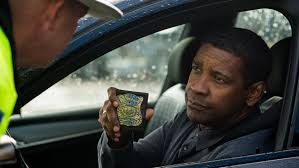SHORT TAKE:
Disappointing, lackluster reboot of Dr. Who into the first female incarnation of the main character, in a plot that is a routine set up without any real payoff.
WHO SHOULD GO:
Anyone CAN go see this DR. WHO, but…(to use a different interrogative pronoun)…WHY?
AND IF YOU LIKE THESE REVIEWS PLEASE SUBSCRIBE! THEN YOU'LL GET EVERY NEW REVIEW SENT STRAIGHT TO YOUR E-MAIL!!
GO TO THE BOTTOM OF THE LEFT HAND SIDE AND TYPE YOUR E-MAIL IN – IT (SHOULD BE) THAT EASY. ANY PROBLEMS PLEASE SEND ME A COMMENT AND I'LL DO MY BEST TO RESOLVE YOUR ISSUE.
LONG TAKE:
 I went with an open mind, I really did. After all, I was pleasantly shocked to discover that, contrary to my long held opinion, a good superhero could be made featuring a woman when
I went with an open mind, I really did. After all, I was pleasantly shocked to discover that, contrary to my long held opinion, a good superhero could be made featuring a woman when 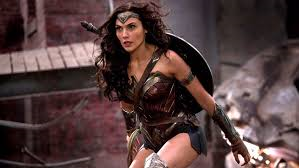 Wonder Woman’s Gal Gadot knocked the socks off me with her powerful but feminine portrait of a righteously heroic super woman.
Wonder Woman’s Gal Gadot knocked the socks off me with her powerful but feminine portrait of a righteously heroic super woman.
So it was with high hopes that I went to go see the premiere of the very first show featuring the very first woman Dr Who – that is with the exception of The Curse of Fatal Death, the parody filmed for the charity Comic Relief with Rowen Atkinson who ultimately morphs into 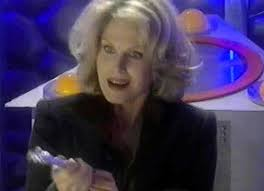 Joanne Lumley in 1999.
Joanne Lumley in 1999.
If you like the  cheap waxy chocolate in your Easter basket;
cheap waxy chocolate in your Easter basket;  if you make your milkshakes out of fat free ice milk; if you prefer plain
if you make your milkshakes out of fat free ice milk; if you prefer plain  unsweetened rice cakes for breakfast;
unsweetened rice cakes for breakfast;  if your refreshment of choice is a clear sugar free diet soda (why don't you just drink water?);
if your refreshment of choice is a clear sugar free diet soda (why don't you just drink water?); 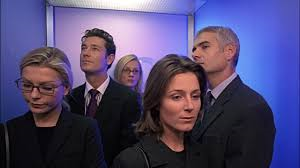 if your musical taste runs to the elevator music version of "In-A-Gadda-Da-Vida" — then this is the Dr Who for you. All promise and little delivery.
if your musical taste runs to the elevator music version of "In-A-Gadda-Da-Vida" — then this is the Dr Who for you. All promise and little delivery.
SPOILERS
To start with, the pronouns present a challenge, but let’s do this – if I’m referring to  Jody Whittaker’s Dr Who it seems fair to use the feminine. BUT if I refer to any previous incarnation,
Jody Whittaker’s Dr Who it seems fair to use the feminine. BUT if I refer to any previous incarnation, 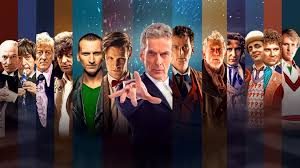 then the masculine grammatical reference should apply.
then the masculine grammatical reference should apply.
For those of you NOT familiar with Dr Who, please refer to my previous blog on Dr Who: Twice Upon a Time, which gives a quick "cheat sheet" introduction to the Whovian Universe.
For those of you already familiar with Dr Who, the premise of The Woman Who Fell to Earth, is that the first female Doctor (literally) falls to Earth – and physically – through a train roof, just as the passengers are being terrorized by an energy ball of tentacles.  Companions happen upon her and follow like dust motes in the wake of a guppy and they decide to figure out what it is and its connection to another alien with teeth imbedded in its face. Meanwhile, an entire more interesting and better acted subplot involving a missing girl and her murdered brother are brushed aside like so much flotsam and the story drags to a conclusion with manufactured tension and a lead who can not even smile convincingly.
Companions happen upon her and follow like dust motes in the wake of a guppy and they decide to figure out what it is and its connection to another alien with teeth imbedded in its face. Meanwhile, an entire more interesting and better acted subplot involving a missing girl and her murdered brother are brushed aside like so much flotsam and the story drags to a conclusion with manufactured tension and a lead who can not even smile convincingly.
None of this is remotely quality Who.
Even the beginning flies in the face of the basic mechanics of the Who-verse. Everyone knows or suspects strongly that Dr. Who’s TARDIS gets him/her to where they are most needed. From the get go, as explained by Whittaker's Who, the TARDIS was wounded and dematerialized 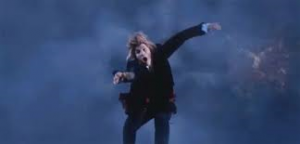 leaving the new Who to the tender ministrations of gravity. So Who's propitious appearance at the train to save the passengers seems more like coincidence than it should.
leaving the new Who to the tender ministrations of gravity. So Who's propitious appearance at the train to save the passengers seems more like coincidence than it should.
Next, while the Doctor has shown himself to be physically resilient, and crashing bodily into Earth like a thrown bowling ball is not necessarily the most injurious event he has ever survived, to fall to Earth from near outer space and crash THROUGH a train roof without so much as mussed hair is a bit much for even my considerable suspension of disbelief.
Tennant, 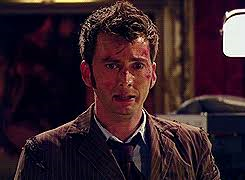 having burst through a skylight in The End of Time Part II looks like he's been on the wrong side of a blender.
having burst through a skylight in The End of Time Part II looks like he's been on the wrong side of a blender.
And her adaptability to her new body misses SO much. 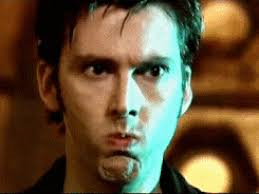 Tennant noticed new teeth immediately before collapsing from the regeneration effort.
Tennant noticed new teeth immediately before collapsing from the regeneration effort. 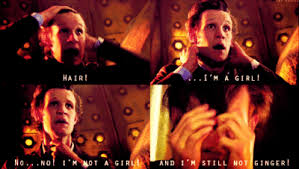 Matt Smith examined his whole body in a humorous frenzy even as the TARDIS was exploding around him: "Legs! I've still got legs! Good. Arms. Hands. Oo! Fingers. Lots of fingers. Ears. Yes. Eyes two. Nose. I've had worse. Chin. [Noting its size] Blimey. Hair. [presciently] I’m a girl. [feels Adam’s apple] No no. I’m not a girl. [Pulling a lock of hair forward to look at it, grumps] And still not ginger."
Matt Smith examined his whole body in a humorous frenzy even as the TARDIS was exploding around him: "Legs! I've still got legs! Good. Arms. Hands. Oo! Fingers. Lots of fingers. Ears. Yes. Eyes two. Nose. I've had worse. Chin. [Noting its size] Blimey. Hair. [presciently] I’m a girl. [feels Adam’s apple] No no. I’m not a girl. [Pulling a lock of hair forward to look at it, grumps] And still not ginger." 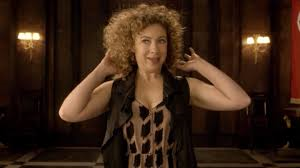 When River Song morphed from young black teen to middle aged but shapely white woman we got more brilliant acting with Alex Kingston as she admires her own new hair then hollars from the bathroom: "Oh, that’s magnificent! I’m gonna wear lots of jodhpurs!"
When River Song morphed from young black teen to middle aged but shapely white woman we got more brilliant acting with Alex Kingston as she admires her own new hair then hollars from the bathroom: "Oh, that’s magnificent! I’m gonna wear lots of jodhpurs!"
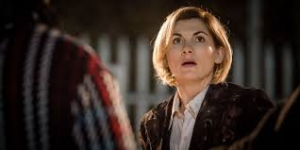 Jody Whittaker's Dr. Who's only comment is "Brilliant" and we're not even sure she's reacting to her new gender. Granted this is a flaw in the writing, but there's no indication from her acting or movements that she is: awed, amazed, dismayed, confused, curious, intrigued, or turned on by the fact that for the first time she is whole new GENDER! When in the past your previous selves have been surprised and dazzled by hair color and teeth size, and another Time Lord by the size of her own booty, you'd THINK a change in your entire sex would merit SOME attention. Even the spoof skit showed
Jody Whittaker's Dr. Who's only comment is "Brilliant" and we're not even sure she's reacting to her new gender. Granted this is a flaw in the writing, but there's no indication from her acting or movements that she is: awed, amazed, dismayed, confused, curious, intrigued, or turned on by the fact that for the first time she is whole new GENDER! When in the past your previous selves have been surprised and dazzled by hair color and teeth size, and another Time Lord by the size of her own booty, you'd THINK a change in your entire sex would merit SOME attention. Even the spoof skit showed 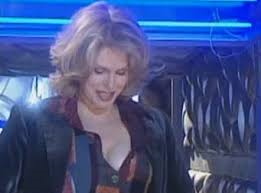 Lumley impressed with her new found…upgrades. In The Woman Who Fell to Earth her responses COULD have been tastefully done and REALLY funny. But it was like "Shave and a hair cut…………….." WHERE was the overwhelm? Where was the curiosity?
Lumley impressed with her new found…upgrades. In The Woman Who Fell to Earth her responses COULD have been tastefully done and REALLY funny. But it was like "Shave and a hair cut…………….." WHERE was the overwhelm? Where was the curiosity?
And her acting is – to put it kindly – bland. To NOT be so kind,  she demonstrates all the emoting variations of an indulgent second grade school teacher.
she demonstrates all the emoting variations of an indulgent second grade school teacher.
Don't believe me? Let's take a trip down memory lane:
Now here's the new Dr Who: Her busy face,  her studious face
her studious face 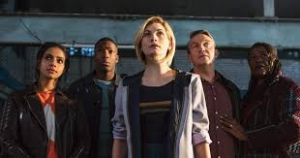 her surprised face.
her surprised face.  Is she afraid to move her eyebrows? Or show any genuine enthusiasm? Or risk looking silly?
Is she afraid to move her eyebrows? Or show any genuine enthusiasm? Or risk looking silly?
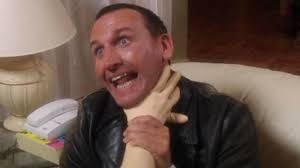 Where is the humor?
Where is the humor? 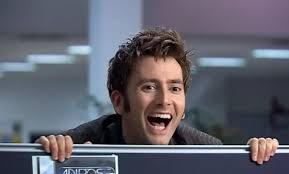 Where is the childlike enthusiasm to which we can all relate? And while, again, this is largely the fault of the script, it's not even that the show takes itself too seriously. I've often told our kids – it's not necessarily WHAT you say, but HOW you say it that makes all the difference.
Where is the childlike enthusiasm to which we can all relate? And while, again, this is largely the fault of the script, it's not even that the show takes itself too seriously. I've often told our kids – it's not necessarily WHAT you say, but HOW you say it that makes all the difference. 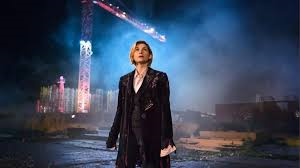 And I can't help but nostalgically wonder how a previous doctor (pick one – ANY one) would have done the reading on these same fairly uninspired lines and what desperately needed, resuscitating life they might have given them.
And I can't help but nostalgically wonder how a previous doctor (pick one – ANY one) would have done the reading on these same fairly uninspired lines and what desperately needed, resuscitating life they might have given them.
The writing is mundane and pedestrian. The trailer even features a good example: "I'm The Doctor. When people need help I never refuse." This is not only lazy writing but it is said with all the conviction of a PSA.
There's a scene where she jumps dramatically and dangerously (in Capaldi's slippery ill-fitting dress shoes) from one crane to another about 15 stories off the ground, then simply talks and tosses something to the bad guy to win the day. It would have been far more interesting if she had realized she did not have the upper body strength in the female body she now has, admitted that and worked around it. Realistically she could have done exactly what she ended up doing – talking and tossing – only without the death defying leap. This is just manufactured suspense.
Even the title is not particularly creative, merely a take on an old David Bowie sci fi vehicle The MAN Who Fell to Earth. 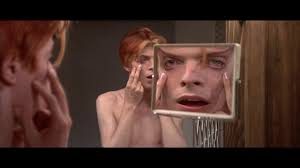 There's no connection except the paraphrase.
There's no connection except the paraphrase.
 Her companions are ginned up from what looks like the
Her companions are ginned up from what looks like the  politically correct pool of the week:
politically correct pool of the week:  an elderly white man, married to a caricature of the pushy black woman, with a black teen grandson and
an elderly white man, married to a caricature of the pushy black woman, with a black teen grandson and 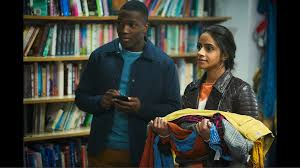 a young woman whose last name is Khan who used to be a classmate of the grandson.
a young woman whose last name is Khan who used to be a classmate of the grandson. 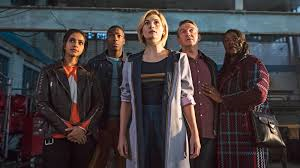 They are all intimately related to each other yet we are to believe it is all coincidence. It was so unlikely a group of connections that I thought, surely the links must be part of the plot twist.
They are all intimately related to each other yet we are to believe it is all coincidence. It was so unlikely a group of connections that I thought, surely the links must be part of the plot twist. 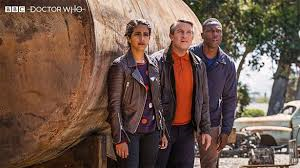 But no, again just lazy writing to avoid having to introduce these characters to each other and endure the arduous task of creatively writing ways and events for them to get to know each other. Yet none of them has any real chemistry with either each other or the Doctor. And when one of them dies…..
But no, again just lazy writing to avoid having to introduce these characters to each other and endure the arduous task of creatively writing ways and events for them to get to know each other. Yet none of them has any real chemistry with either each other or the Doctor. And when one of them dies…..
SORRY – SPOILER – BUT HONESTLY, "WHO" CARES?
…….I wanted to feel badly about it but the show gave us little emotional investment to spend.
The direction was unremarkable but adequate – sort of like a high end shampoo commercial.
 There is no vision. There was no rhyme or reason.
There is no vision. There was no rhyme or reason.  Dr. Who started out over a half century ago as Britain's answer to Mr. Wizard – a science show which presented interesting facts in an entertaining way. It has – up to now – held to the tradition of teaching …. something: how to treat your fellow sentient creature, clever ways to solve puzzles, return evil with kindness, self sacrifice to protect the innocent, theories on effects of time travel, how other creatures from entirely different perspectives might react to the human culture, simply – thou shalt not kill. But I got the impression Mr. Chibnall, the show's new writer, has not yet gotten the memo on this one. He wrote a couple of the mini-shorts
Dr. Who started out over a half century ago as Britain's answer to Mr. Wizard – a science show which presented interesting facts in an entertaining way. It has – up to now – held to the tradition of teaching …. something: how to treat your fellow sentient creature, clever ways to solve puzzles, return evil with kindness, self sacrifice to protect the innocent, theories on effects of time travel, how other creatures from entirely different perspectives might react to the human culture, simply – thou shalt not kill. But I got the impression Mr. Chibnall, the show's new writer, has not yet gotten the memo on this one. He wrote a couple of the mini-shorts 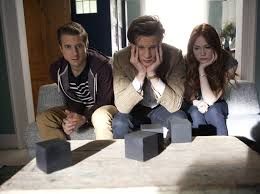 "The Power of Three" and "Pond Life" as well as some pretty decent other shows: 42,
"The Power of Three" and "Pond Life" as well as some pretty decent other shows: 42, 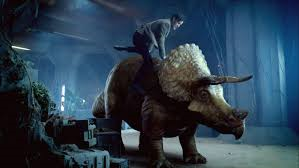 Dinosaurs on a Spaceship, Cold Blood/Hungry Earth. But being able to pick up a basket of pecans does not mean you have the strength to carry the entire TREE. And carrying a FOREST is what shouldering the work of creatively moving forward with this formerly imaginative show, with more than 50 years of history and backstory demands from WHOever thinks they can captain this ship.
Dinosaurs on a Spaceship, Cold Blood/Hungry Earth. But being able to pick up a basket of pecans does not mean you have the strength to carry the entire TREE. And carrying a FOREST is what shouldering the work of creatively moving forward with this formerly imaginative show, with more than 50 years of history and backstory demands from WHOever thinks they can captain this ship.  Mark Gatiss, Steven Moffat or
Mark Gatiss, Steven Moffat or 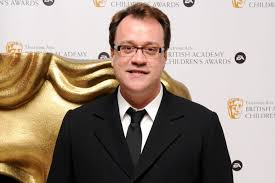 Russell T. Davies, Chibnall is not.
Russell T. Davies, Chibnall is not.
There IS a lot of running, some red herring puzzles and a so-so denoument with forced tension and nothing to learn in the end. We don't even really find out what happens to the person she set out to save. And when the survivor moves in self-defense she chides him: "You shouldn't have done that." We go to an awkward visual cut to somewhere else on the soundstage and that's the last we ever see of him. Huh?
She preposterously builds a new sonic screwdriver out of dust, gizmos and a bag of metal coffee spoons lying around a cluttered human workshop. It might have been vaguely believable if she had used the tech that WAS potentially available from a discarded space "eggshell" but even that McGuffin wasn't utilized. If they are THAT easy to make why doesn't she make LOTS of them? Hand them out like party favors to her companions?
And to top everything else off they went out of their way to dis Christianity. Mostly, Dr Who, like Star Trek, leaves religion alone. But when one of their crew dies, the funeral is held in a church, but the cross beam of the cross behind the altar area is deliberately covered by carefully placed…balloons! Balloons? At a FUNERAL? And why HAVE the funeral in a Christian church if you are going to cover up the primary symbol of that institution unless you: A. Want to go out of your way to thumb your nose at the Christian faith, or B. You don't want to be bothered to think of any place else and you're too cheap to actually take the cross down. So disrespectful or indolent, take your pick.
And the death was stupid ANYway. The character threw themself into a dangerous situation unnecessarily then died clumsily. The death served no real purpose other than to cut the number of companions from four to three. "Thrift, Horatio, thrift." Fewer paychecks I suppose.
There are a zillion other dumb plot decisions: did she really wear that manky suit to the funeral? She doesn't even TRY to negotiate for the captured sister that one of the subplot characters died horribly trying to find. Since when does a Time Lord stick their finger up their nose to determine when they are going to faint? Did Chibnall think this was funny? Why on Earth would someone touch a glowing grid that appears out of nowhere? How DID he get his bike out of the tree? Did she not even CONSIDER her "friends" might be sucked into space with her using her jury rigged spit and bailing wire transporter? Why would she run on a wet crane in slippery dress shoes a couple sizes too big when she could have at least taken them off? What are the chances ALL the companions, randomly found, knew each other already without that fact being a plot point?
It all felt – as though you were given 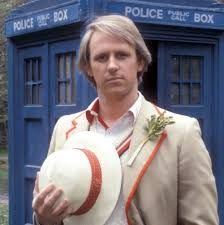 Peter Davison's celery stalk with no dressing as your entire dinner or you were expected to warm yourself with only a bit of fringe off of
Peter Davison's celery stalk with no dressing as your entire dinner or you were expected to warm yourself with only a bit of fringe off of 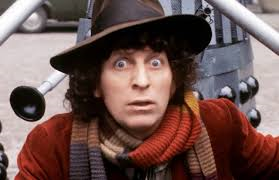 Tom Baker's scarf – underdone, incomplete, ill-thought out, unfulfilling and unfinished (kind of like the way we all felt about the actor
Tom Baker's scarf – underdone, incomplete, ill-thought out, unfulfilling and unfinished (kind of like the way we all felt about the actor  Christopher Eccleston's career as Dr. Who after he refused to be in the 50th Anniversary Special for no particularly good reason). So watching this Dr. Who I now know how Roger Rabbit felt when
Christopher Eccleston's career as Dr. Who after he refused to be in the 50th Anniversary Special for no particularly good reason). So watching this Dr. Who I now know how Roger Rabbit felt when 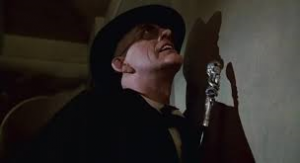 Judge Doom knocked on the wall and "inquired": "Shave and a hair cut," and he wasn't allowed to yell "TWO-BITS!"
Judge Doom knocked on the wall and "inquired": "Shave and a hair cut," and he wasn't allowed to yell "TWO-BITS!"
So finally we are left with yet another interrogative pronoun and a burning question: WHERE is the real Dr. Who?! And will SOMEONE please say "TWO-BITS!"
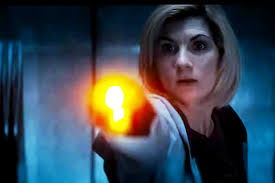
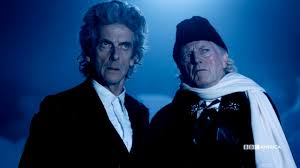
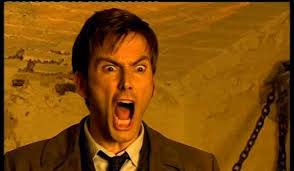
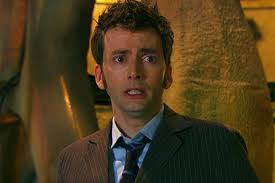

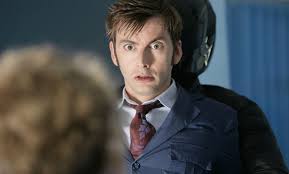
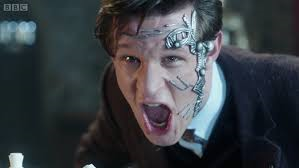
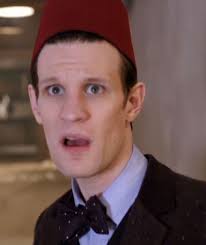
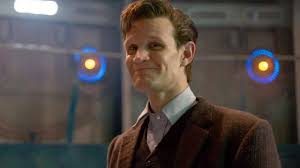
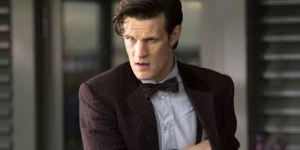
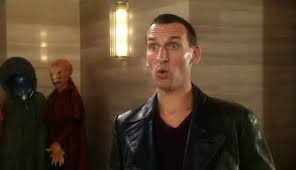






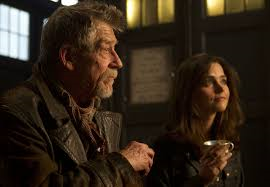
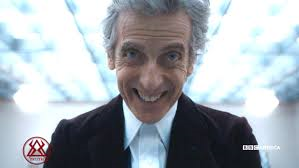
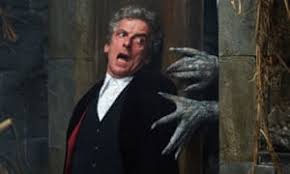
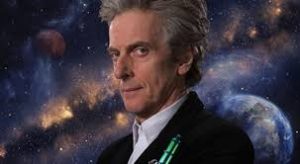

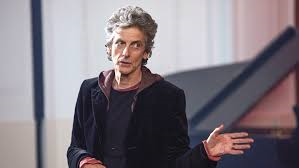
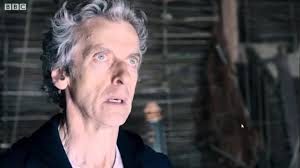

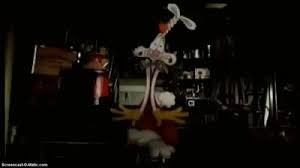

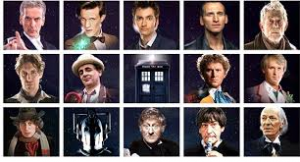

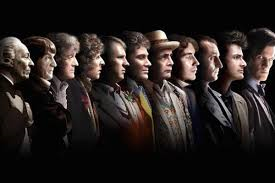
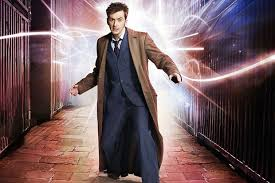
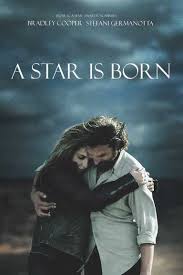
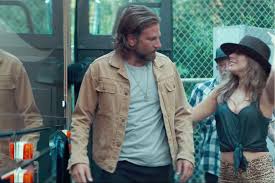
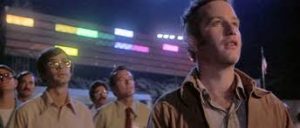

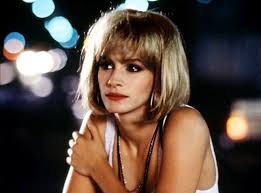

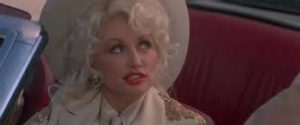
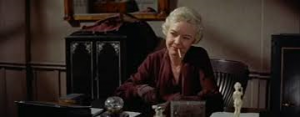
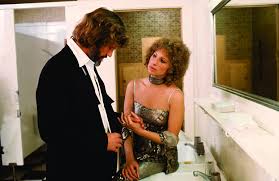
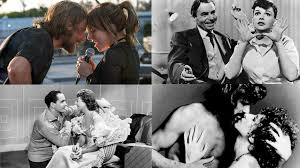
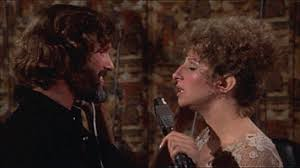

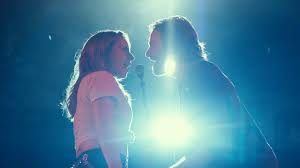
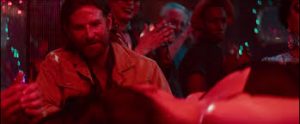
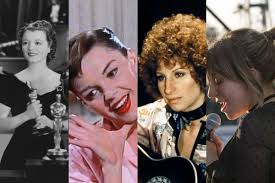
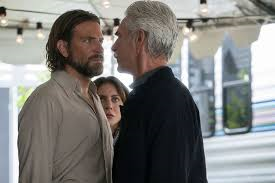
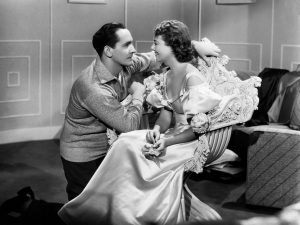

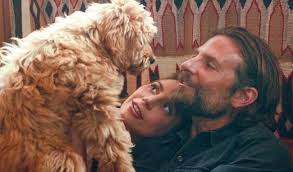
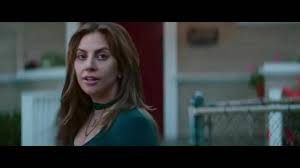



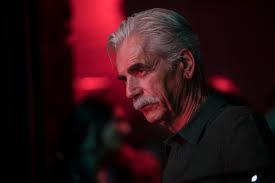
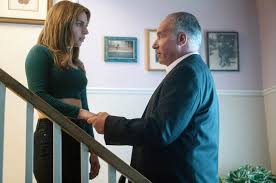
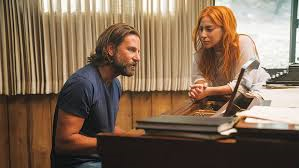
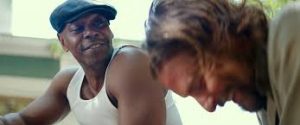



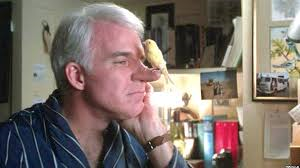
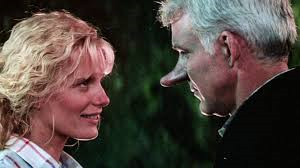
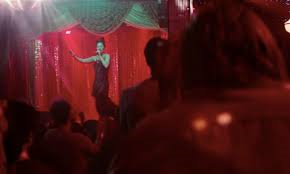
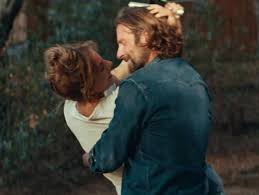



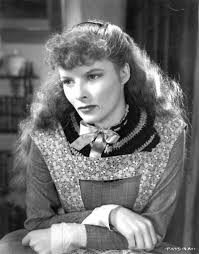
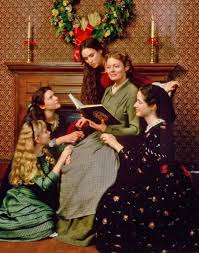
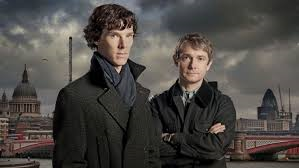


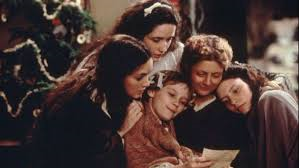

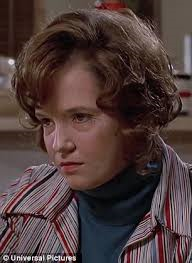
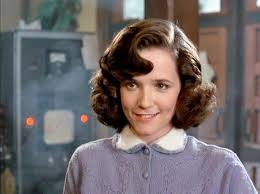
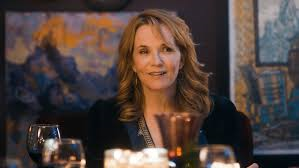

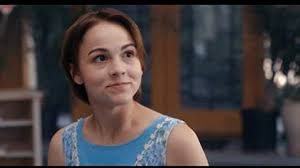
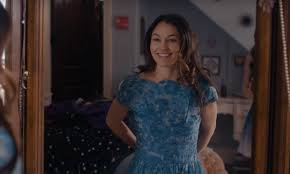

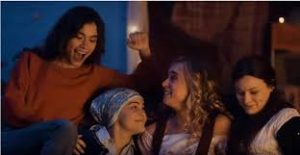



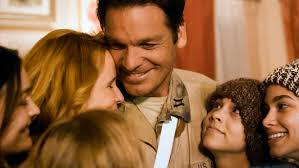
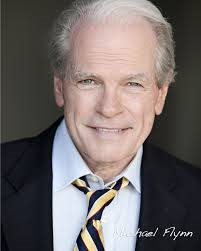



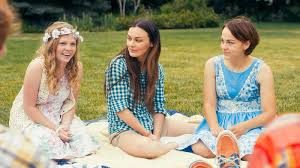
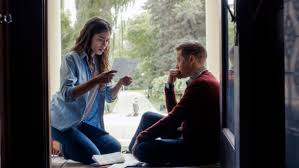
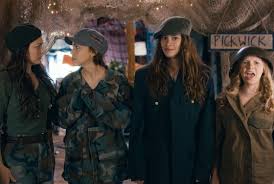


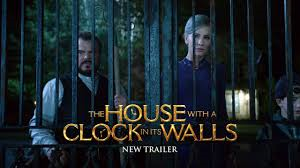
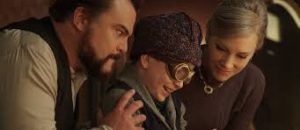
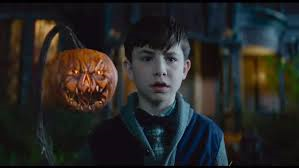


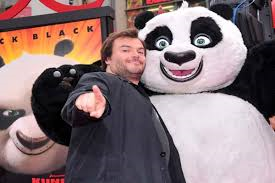
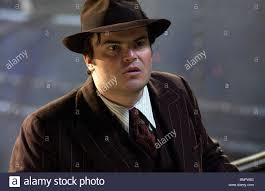


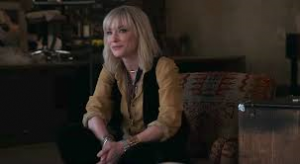
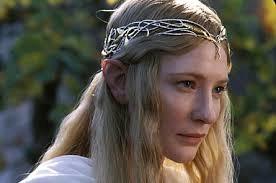
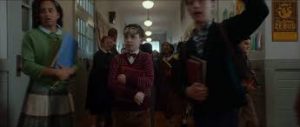
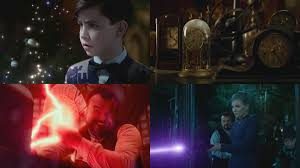

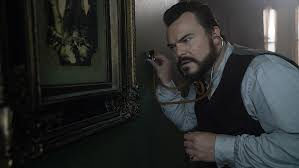
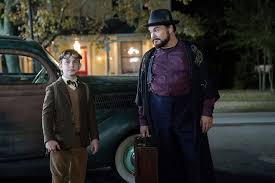
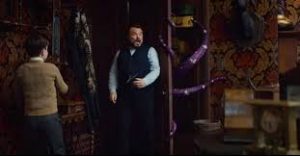
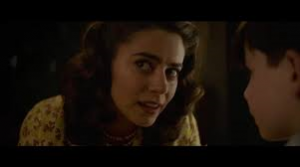

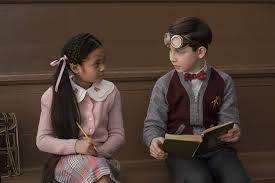
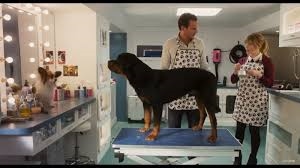
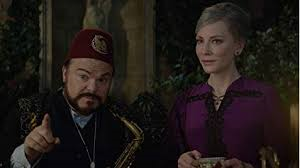
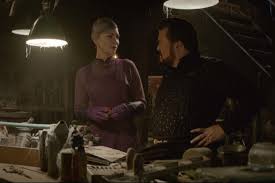


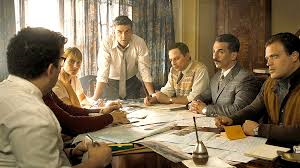
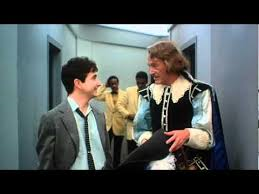
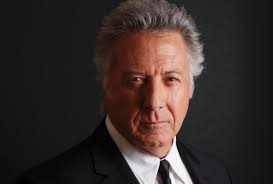
 Dustin Hoffman,
Dustin Hoffman,  Charlize Theron, and
Charlize Theron, and 
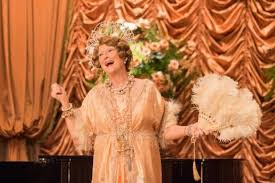 Meryl Streep, all of whom display an exceptional craft along with an unhesitating commitment, which includes not minding making themselves look ugly, should the roll require it.
Meryl Streep, all of whom display an exceptional craft along with an unhesitating commitment, which includes not minding making themselves look ugly, should the roll require it.
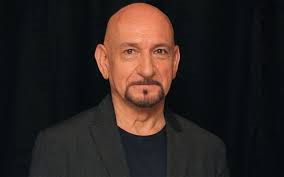 Ben Kingsley falls into this category. Kinglsey is a versatile and mesmerizing actor. From the titular historic
Ben Kingsley falls into this category. Kinglsey is a versatile and mesmerizing actor. From the titular historic 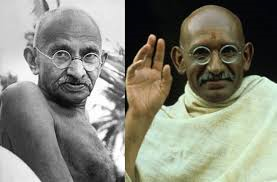 Ghandi to the ridiculous
Ghandi to the ridiculous 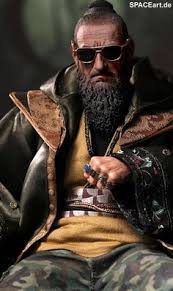 Mandarin in Iron Man 3, from the wise and genlle
Mandarin in Iron Man 3, from the wise and genlle  Itzhak Stern, Schindler's Jewish accountant, in Schindler's List, to the brutal gangster
Itzhak Stern, Schindler's Jewish accountant, in Schindler's List, to the brutal gangster  Don Logan in Sexy Beast, Kingsley displays a repertoire which few could master.
Don Logan in Sexy Beast, Kingsley displays a repertoire which few could master.
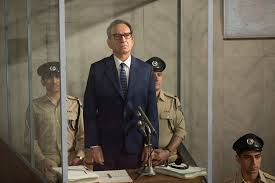
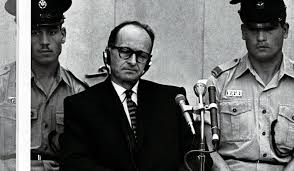 of one of Hitler's most notorious henchmen, the architect of The Final Solution, the genocidal slaughterer of millions of Jewish families,
of one of Hitler's most notorious henchmen, the architect of The Final Solution, the genocidal slaughterer of millions of Jewish families, 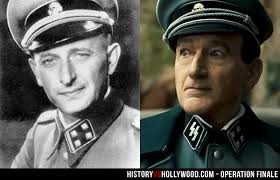 Adolph Eichmann. Eichmann is the person about whom the expression "the banality of evil" Hannah Arendt, reporting on Eichmann's trial, referred. Arendt recognized these horrific deeds were performed not out of sadism or any evil intent,
Adolph Eichmann. Eichmann is the person about whom the expression "the banality of evil" Hannah Arendt, reporting on Eichmann's trial, referred. Arendt recognized these horrific deeds were performed not out of sadism or any evil intent, 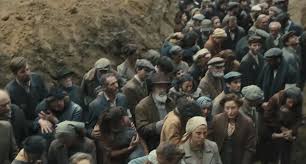
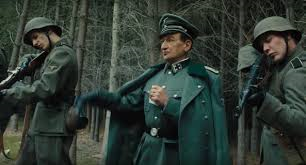 but by a merely bureaucratic routine functionary going through motions which he thought would advance his career, without any thought or care for the consequences of his actions. To my mind, this is perhaps more horrifying than a serial killer who gets his jollies from inflicting pain and suffering. A serial killer can be temporarily satiated. A Nazi bureaucrat could continue daily for decades without a thought or need to slow.
but by a merely bureaucratic routine functionary going through motions which he thought would advance his career, without any thought or care for the consequences of his actions. To my mind, this is perhaps more horrifying than a serial killer who gets his jollies from inflicting pain and suffering. A serial killer can be temporarily satiated. A Nazi bureaucrat could continue daily for decades without a thought or need to slow.
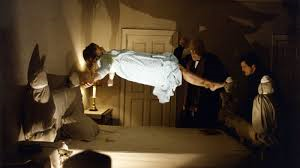



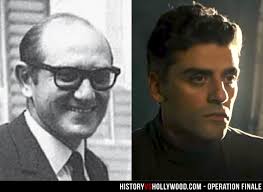 Oscar Isaac portrays the real life Peter Malkin, a member of the Mossad and survivor of the Nazi genocide, instrumental to this historic Israeli organized clandestine operation.
Oscar Isaac portrays the real life Peter Malkin, a member of the Mossad and survivor of the Nazi genocide, instrumental to this historic Israeli organized clandestine operation. 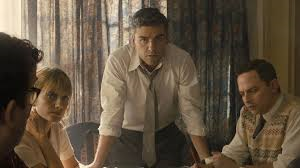 Presented as historic drama, Operation Finale begins with one of Malkin's failures and proceeds primarily through his point of view as ephemerally loose threads are found and woven into the net which unearths this man who committed some of the most evil acts in all of mankind's history – which, given mankind's propensity for evil acts is saying something.
Presented as historic drama, Operation Finale begins with one of Malkin's failures and proceeds primarily through his point of view as ephemerally loose threads are found and woven into the net which unearths this man who committed some of the most evil acts in all of mankind's history – which, given mankind's propensity for evil acts is saying something.
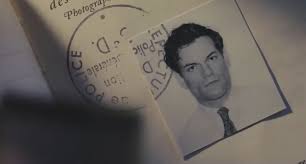 men and women
men and women 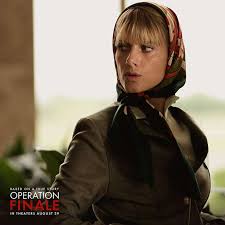 who risked capture, torture and death
who risked capture, torture and death 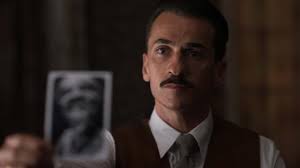 themselves in Argentina, a country which happily welcomed notorious high ranking Nazis
themselves in Argentina, a country which happily welcomed notorious high ranking Nazis 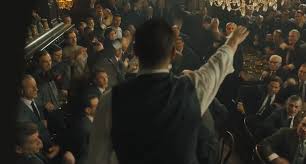 and was still rife with open anti-Semitism.
and was still rife with open anti-Semitism.
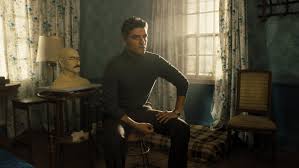 As time begins to run out and the increasingly frustrated and tightly strung agents, some last remaining members of their families, endure proximity to their former tormentor, now prisoner, Malkin takes it upon himself to get inside of Eichmann's head. We, and they, start to wonder if one side or the other – Eichmann or the Mossad members – is succumbing to what would later be known as Stockholm Syndrome.
As time begins to run out and the increasingly frustrated and tightly strung agents, some last remaining members of their families, endure proximity to their former tormentor, now prisoner, Malkin takes it upon himself to get inside of Eichmann's head. We, and they, start to wonder if one side or the other – Eichmann or the Mossad members – is succumbing to what would later be known as Stockholm Syndrome.
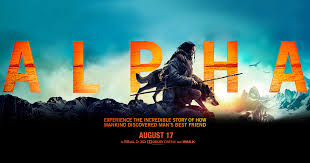
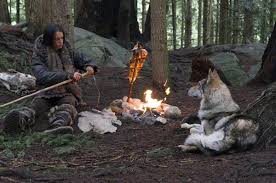
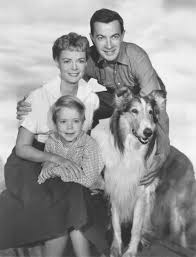
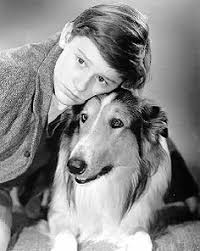

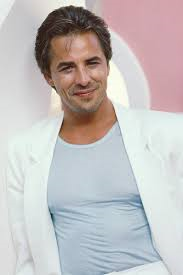
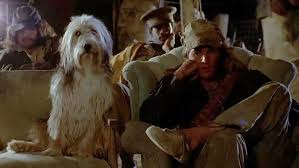
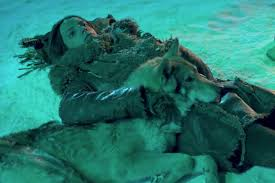
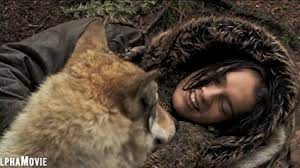

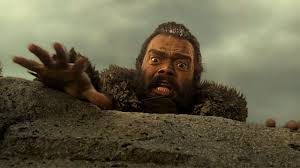

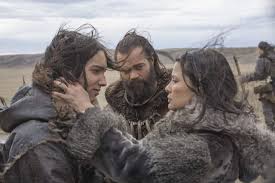

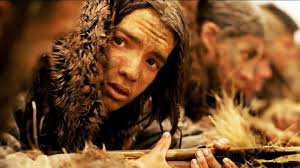

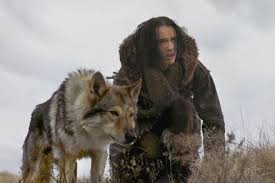 Both the audience and he realize along the way, that if he survives his adventure, he will become the capable man and leader he otherwise would not have been.
Both the audience and he realize along the way, that if he survives his adventure, he will become the capable man and leader he otherwise would not have been.

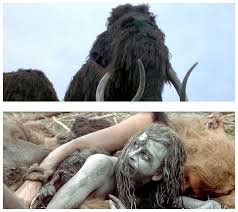
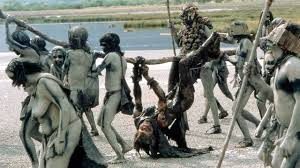



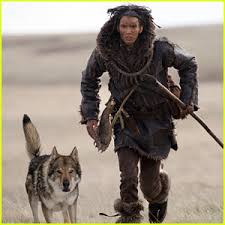
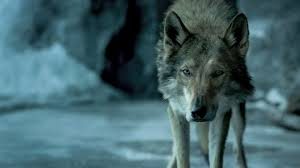

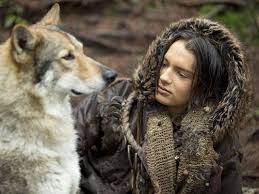

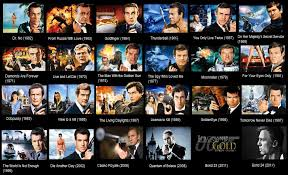
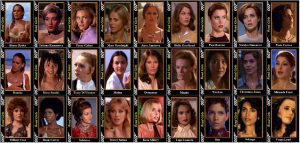
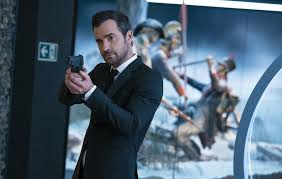
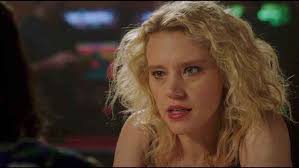

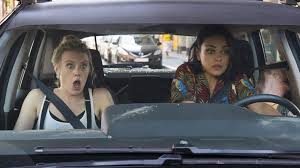

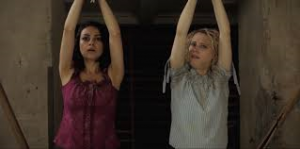




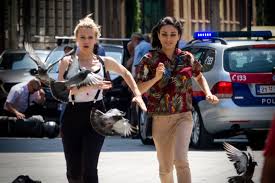
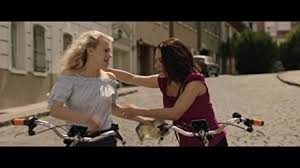
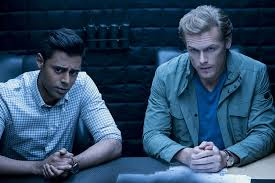
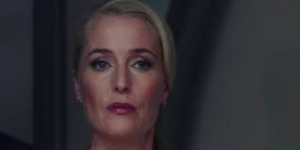
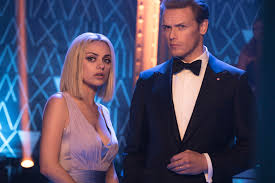
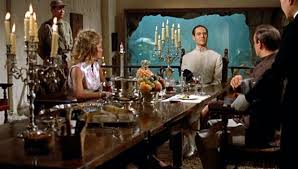
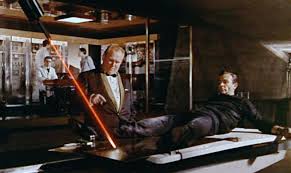
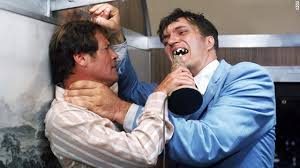
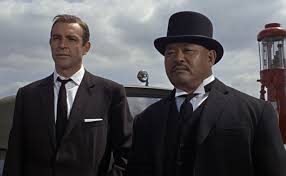
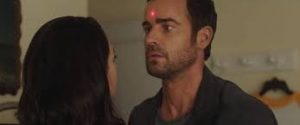

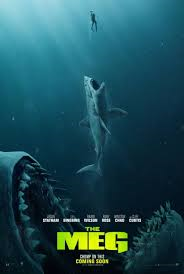
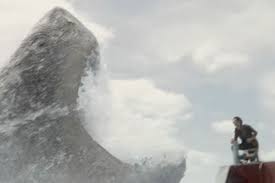
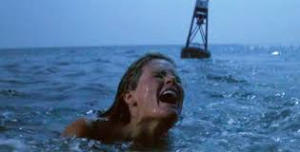
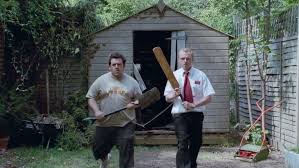
 The director of The Meg, Jon Turteltaub, had the Meg's tongue planted firmly in cheek, (though, technically, almost no shark actually USES its tongue – called a basihyal. ed).
The director of The Meg, Jon Turteltaub, had the Meg's tongue planted firmly in cheek, (though, technically, almost no shark actually USES its tongue – called a basihyal. ed). 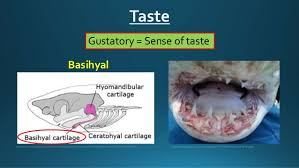
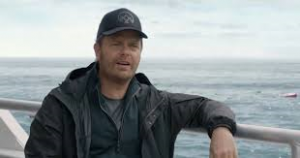
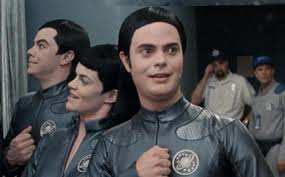

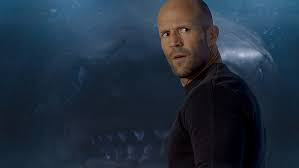



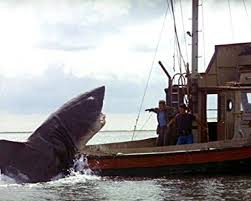
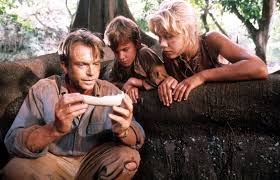
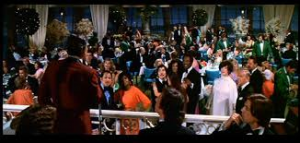

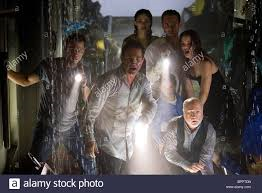



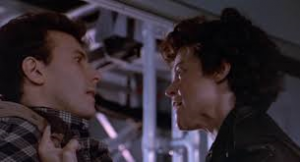
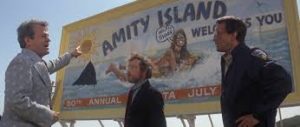
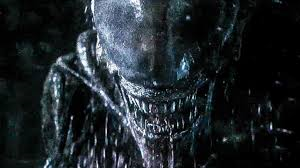
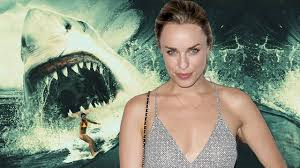
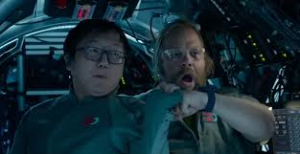


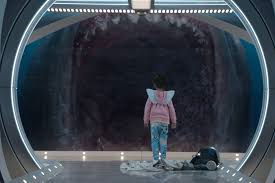
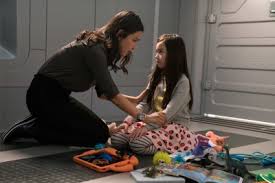
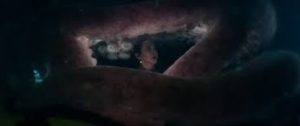
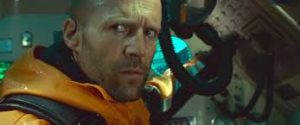
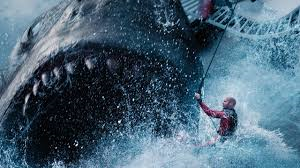




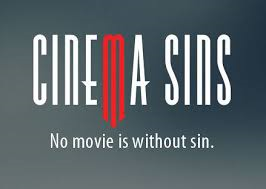
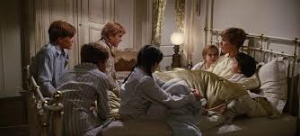
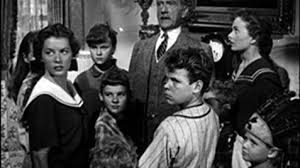

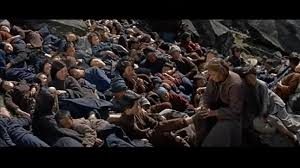
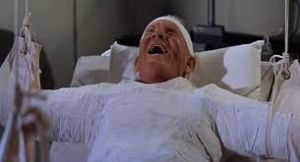


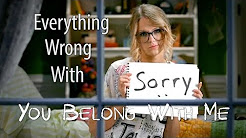
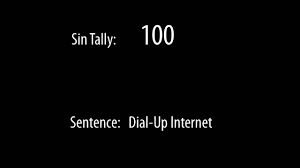

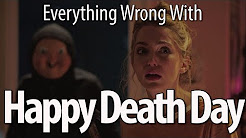
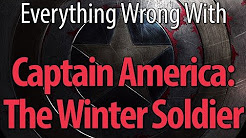

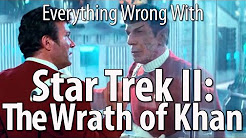
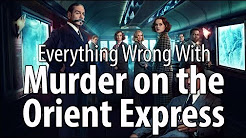


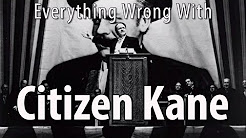


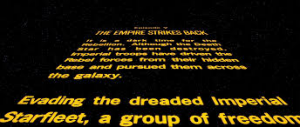





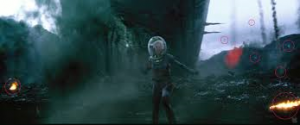
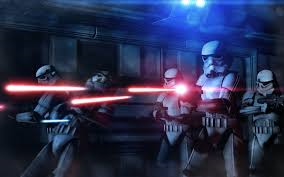


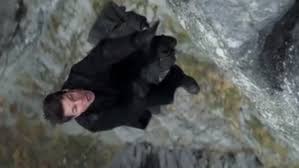

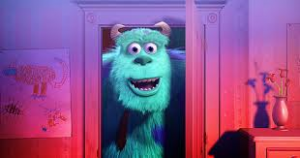
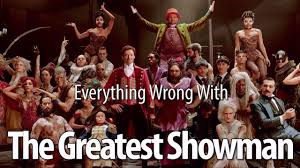
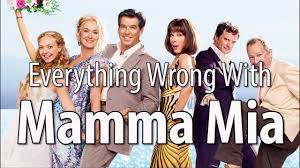

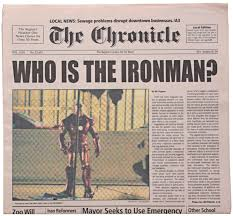




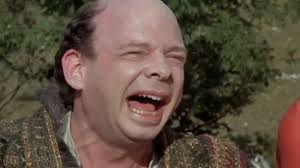
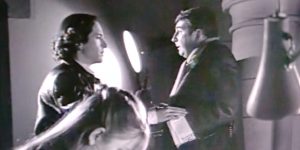
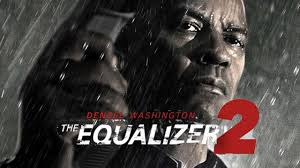
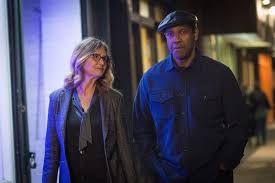 One of the rules of good scriptwriting is SHOW DON'T TELL and I think Equalizer 2 did a (excuse the pun) bang up good job on this point.
One of the rules of good scriptwriting is SHOW DON'T TELL and I think Equalizer 2 did a (excuse the pun) bang up good job on this point.
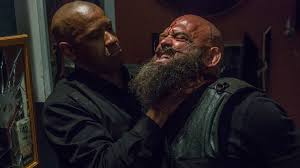 The main storyline of Equalizer 2 follows McCall when, about a half hour into the movie, his friend is brutally murdered.
The main storyline of Equalizer 2 follows McCall when, about a half hour into the movie, his friend is brutally murdered. 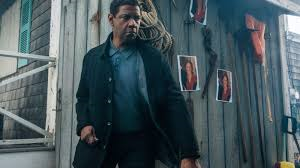 McCall announces, is expected to, and eventually does, take violent retribution against the perpetrators. But I found the subplots, and the way the narrative is handled, far more interesting.
McCall announces, is expected to, and eventually does, take violent retribution against the perpetrators. But I found the subplots, and the way the narrative is handled, far more interesting.
 For example, the movie starts, (and not properly a spoiler as it is in the trailer) with a Muslim-costumed Denzel Washington confronting Turkish thugs on a train. Only later, as he goes about his normal routine back in Chicago do we OBSERVE how he knew of a problem and what it would take to fix it. The set up and solution were very quietly and subtly handled. And this small subplot did not even directly relate to the main action, but only served to establish McCall's abilities and personality.
For example, the movie starts, (and not properly a spoiler as it is in the trailer) with a Muslim-costumed Denzel Washington confronting Turkish thugs on a train. Only later, as he goes about his normal routine back in Chicago do we OBSERVE how he knew of a problem and what it would take to fix it. The set up and solution were very quietly and subtly handled. And this small subplot did not even directly relate to the main action, but only served to establish McCall's abilities and personality.
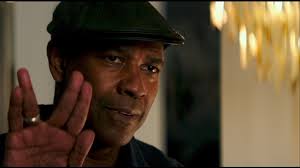 The most compelling part of the screenplay was how McCall exercises that platitude of doing random acts of kindness using the gifts we have. For us ordinary mortals, it might be holding someone's door open or even paying for the coffee of the stranger in line behind you.
The most compelling part of the screenplay was how McCall exercises that platitude of doing random acts of kindness using the gifts we have. For us ordinary mortals, it might be holding someone's door open or even paying for the coffee of the stranger in line behind you. 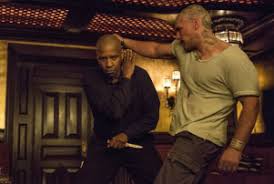 For McCall it's beating the tar out of dangerous, abusive men then making them call the cops on themselves afterwards. When asked why he would take on the job of cleaning spray paint graffiti off of a wall when anyone else could do it, he responds that, although anyone else COULD, no one else DOES, so he does. This is the mantra from which he lives and a motto which raises the bar on what could otherwise have been just another Death Wish vigilante violence porn clone. While I'm not advocating vigilantism, often the mentality is a "kill them all and let God sort them out" philosophy.
For McCall it's beating the tar out of dangerous, abusive men then making them call the cops on themselves afterwards. When asked why he would take on the job of cleaning spray paint graffiti off of a wall when anyone else could do it, he responds that, although anyone else COULD, no one else DOES, so he does. This is the mantra from which he lives and a motto which raises the bar on what could otherwise have been just another Death Wish vigilante violence porn clone. While I'm not advocating vigilantism, often the mentality is a "kill them all and let God sort them out" philosophy.
